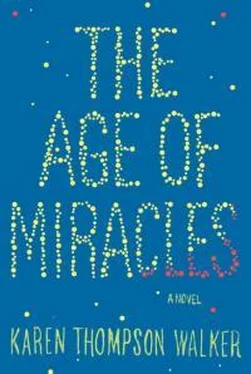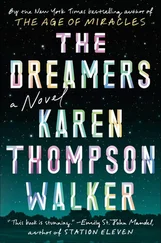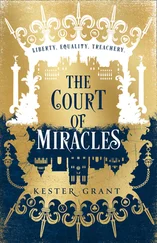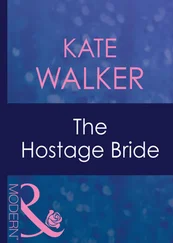It occurred to me too late, after I’d stepped onto the bus and sat down in the front, fifteen rows from Seth, that I could have disappeared into the canyon and no one would have noticed.
I spent the break between classes in the bathroom. I spent another lunch period in the library. Diane was there, as usual, the gold cross around her neck glittering beneath the fluorescent lights. Trevor clacked the computer keys, busy with the game he always played; he held all the high scores. Mrs. Marshall was returning books to the shelves—we could hear the whine of her cart as she wheeled it over the carpet, the crinkle of the cellophane book jackets as she slid each one into place. Every time the door squeaked open, I hoped it would be Seth Moreno—come to apologize or explain.
A bleak thought had begun to bubble in my mind: Maybe he didn’t want to be seen with me at school.
Through the windows simmered the muffled squeals of the other kids, running loose on the quad. Those kids never traveled anywhere alone.
Christy Casteneda swanned past the library window—it was her birthday, too, and not one but two balloons swayed from her delicate wrist, each one signed on the blank silver side in loopy, loving cursive.
I pretended to read. The clock ticked. Seth did not appear.
On dark days like that one, the library windows looked lit up like an aquarium, the inhabitants on display for all the other kids to see: here the most exotic fish, the lonely, the unloved, the weird.
By evening Sylvia’s eucalyptus had been cut into pieces, and the pieces lay stacked like cleaned bones in the driveway. White plastic sheeting covered the hole in the roof, rustling whenever the wind blew. The sun had yet to rise.
My father spent a long time that night inspecting the last eucalyptus in our own yard. Half of it produced leaves, but the other half was dead, and the death seemed to be spreading. He called a tree removal service before we left for my birthday dinner.
My mother came home with a present for me: a pair of gold ballet flats with a crinkled finish. The other girls at school had been wearing them for months. I slipped them on. They squeaked on the tile.
My father gave me a book.
“This was my favorite book when I was about your age,” he said. On the cover was a series of mountains, a valley, a moon. The pages smelled like dust and mildew. “It’s about a kid who’s all alone in the world. He’s really lonely for a long time. But then, well, you’ll see.”
I remembered that book passing through our classroom two or three years earlier. I hadn’t read it, but I was too old for it now.
“Thanks,” I said, and pressed it to my lap.
He squeezed my shoulder. We left for dinner.
“It’s lucky I’m not sick on your birthday,” said my mother as we drove east toward my grandfather’s house. We were picking him up on our way to my favorite restaurant. I was looking forward to seeing him. His voice had a way of cutting through everything else.
“I still think we should’ve had a party,” said my mother. “We should be celebrating the good things.”
“We are,” said my father. He glanced at me in the rearview. “This is what she wanted.”
The landscape outside looked less alive each time we did this drive. It wasn’t only the grass and the eucalyptus trees. There were subtler signs, too. I was certain the banks of the lagoon were browner than they used to be, the cattails and the reeds less abundant than before. We avoided saying it out loud—we had the greenhouses and the sunlamps to keep us fed for now—but it was hard to ignore the way the plants were quietly slipping away, a creeping devastation. God knows what was happening on the less fortunate continents. But the golf course, when we passed it, looked better than ever, more lush and more pristine than it had ever looked in life. All the old greens had been replaced with highend artificial turf, and now golf carts trundled slowly over the hills: the golf course in afterlife.
“I don’t know why we couldn’t invite Hanna,” said my mother. She turned toward me in her seat, the seat belt cutting into her neck. “You two used to be such good friends.”
“Well, we’re not anymore,” I said.
My grandfather’s property looked worse than usual. He had refused to cut down any of his eucalyptus trees. Some stood leafless and grim against the sky. Others had fallen to the ground. But the pines, at least, were persisting and still kept his house hidden from the road and the surrounding development.
We pulled into his driveway. I jumped out onto the gravel, ran up to the door. My parents waited in the car, engine running.
He didn’t answer the door, so I rang the bell again. I knocked. A group of gnats was circling the porch light. Behind me, the black sky was fading, turning ever so slightly light. A slow sunrise was beginning. I tried the doorknob: It was locked.
I went back to the car, my ballet flats crunching hard on the gravel.
“He’s not answering,” I said.
“Maybe he forgot to put in his hearing aid,” said my father.
He turned off the car and followed me back up the walk to the house. My mother cracked the car door for air.
My father had keys to the house. He unlocked the door, and we stepped inside.
“Dad?” said my father. The house was hot and quiet. The only sound was the ticking of clocks. The only light was the overhead in the kitchen. “We’re here.”
The windows were closed, and the shelves were as bare as they had been the last time I visited.
“Where is everything?” asked my father. He ran one finger along a vacant shelf. He peered through the glass front of a mahogany cabinet, empty of its guts of china and crystal.
“On New Year’s,” I said, “he was kind of sorting through his stuff.”
“What do you mean?” said my father.
We took my grandfather out to dinner most Sundays. He was usually waiting on the porch for us, ready to get in the car, insisting we were late.
“He was also putting some of his stuff in boxes,” I said.
“What?” A spark of concern flickered across my father’s face. “But I just talked to him last night.”
The boxes were gone. The table was clear. Everything of any value had vanished. We checked his bedroom and found the bed empty and unmade. We opened the closet: At least half of his clothes were missing, maybe a few pairs of shoes.
In the kitchen we discovered a stack of obscure newsletters and leaflets. A small newspaper was dominated by this headline: WHAT THEY DON’T WANT YOU TO KNOW: THE TRUTH ABOUT CLOCK TIME. To the refrigerator was clipped a political cartoon in which people wandered the street, eyes glazed. The caption read: THE CLOCK ZOMBIES.
My mother wandered in behind us.
“Where is he?” she said.
“I don’t know,” said my father.
“Oh, God,” said my mother. “This place looks like it’s been robbed.”
“Julia says she saw him packing.”
Something was bubbling in my father, a fast current running beneath ice.
“Not exactly packing,” I said.
My mother turned to me, frantic.
“You need to stop keeping secrets, young lady.”
Outside, my father called my grandfather’s name, shouting into the dawn light: “Dad, are you out here?” Through the window, I watched my father search the old stable, the backyard, the dying woods at the edge of the property.
My grandfather could no longer drive. He did not even own a car. He could not have left on his own. He relied on us and on Chip, the teenager who lived down the road, to help him with groceries and rides.
“He’s too old to be living alone,” said my mother. “We should have known.”
I felt tears coming to my eyes.
My father jogged down to Chip’s house, which was one of the new ones in the regular development.
Читать дальше












